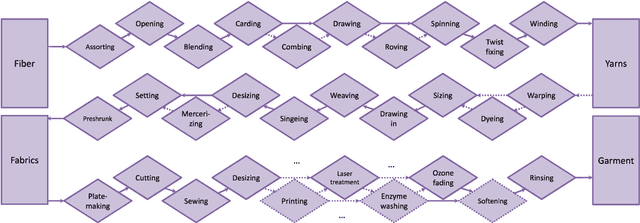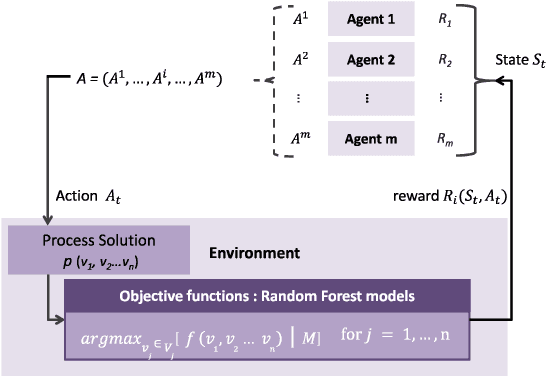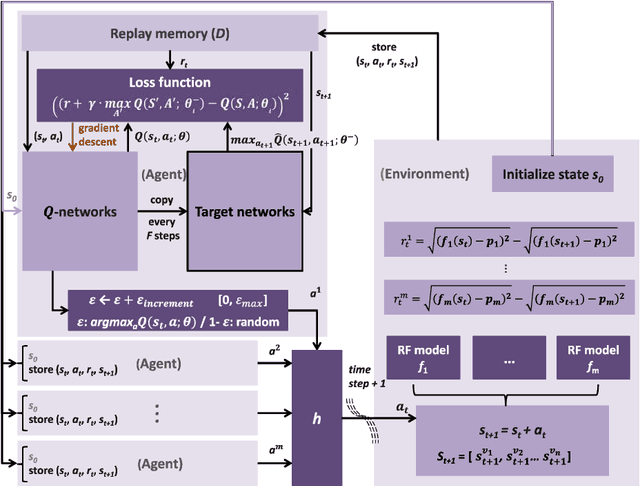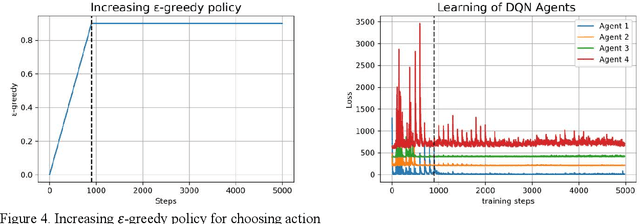Multi-Objective Optimization of the Textile Manufacturing Process Using Deep-Q-Network Based Multi-Agent Reinforcement Learning
Paper and Code
Dec 02, 2020



Multi-objective optimization of the textile manufacturing process is an increasing challenge because of the growing complexity involved in the development of the textile industry. The use of intelligent techniques has been often discussed in this domain, although a significant improvement from certain successful applications has been reported, the traditional methods failed to work with high-as well as human intervention. Upon which, this paper proposed a multi-agent reinforcement learning (MARL) framework to transform the optimization process into a stochastic game and introduced the deep Q-networks algorithm to train the multiple agents. A utilitarian selection mechanism was employed in the stochastic game, which (-greedy policy) in each state to avoid the interruption of multiple equilibria and achieve the correlated equilibrium optimal solutions of the optimizing process. The case study result reflects that the proposed MARL system is possible to achieve the optimal solutions for the textile ozonation process and it performs better than the traditional approaches.
 Add to Chrome
Add to Chrome Add to Firefox
Add to Firefox Add to Edge
Add to Edge